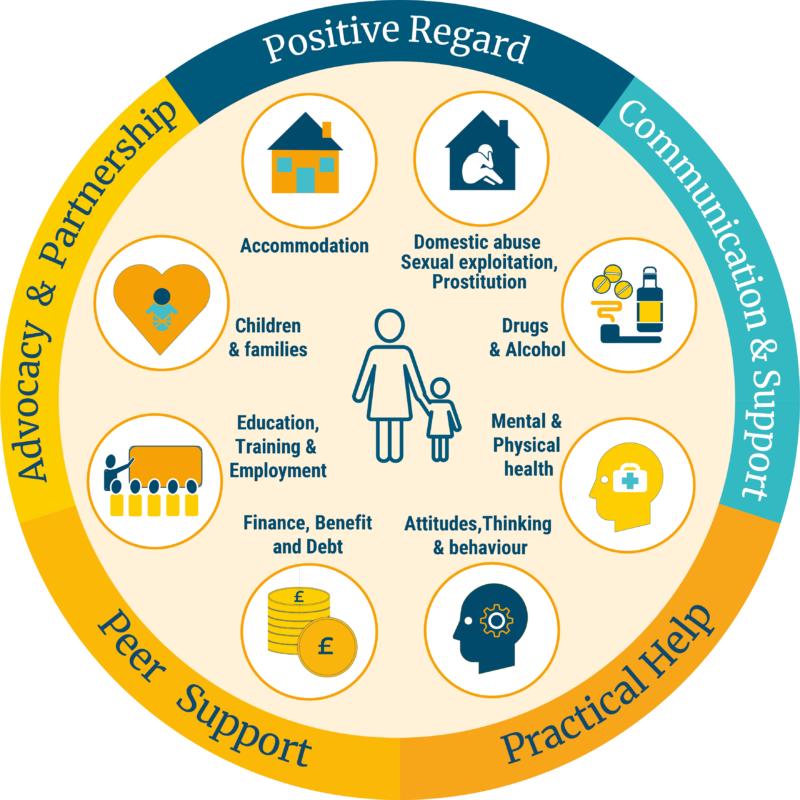We support women in contact with the criminal justice system, whether that is at the point of arrest, in the community, or on probation. We provide practical and emotional support, including through specialist partners to ensure they receive support specific to their individual needs.
Women in contact with the criminal justice system often experience multiple challenges at once, such as with their housing, their physical and mental wellbeing, and caring responsibilities, which is exacerbated by prison.
Our goal is to divert women from the criminal justice system at the earliest opportunity to support and advocate for them across their multiple needs, leading to a reduction in custodial sentences and to prevent further harm and offending.
We believe that the criminal justice service is built by men, for men, so it is important that a safe, woman-only option like Advance is available.
We support women and girls from 15 years old of all levels of risk and need across London and the south of England in safe, women-only spaces like our women’s centres, in community hubs and within custody suites.

Our Minerva approach is based on five principles of support:
Consistent, unconditional positive regard for the women we support
Key to the success of Advance’s Minerva service is the unconditional positive regard keyworkers have for the women they support. This allows a trusted relationship, and a mutual respect to be built and focuses on the woman’s strengths and achievements, aiming to build their self-esteem and encourage them to care for themselves.
Communication and support
We offer consistent face-to-face support in the community, including from one of our Women’s Centres, as well as by phone or email.
Substantial practical help
Minerva keyworkers offer proactive practical help to the women they support. This includes supporting them to complete applications for housing benefits and grants for household items and chasing these up; copying supporting documents; providing food bank vouchers and donated items for mothers and their children; making referrals for refuges; linking clients with IDVAs; arranging appointments with GPs or social care professionals as needed, and attending with the client if requested; arranging therapeutic one-to-one support; inviting the client to attend groups at the women’s centre; and advocating and following up with agencies on the client’s behalf.
Determined advocacy and communication with other agencies
A major part of the keyworker’s role is to communicate with other agencies such as mental health, social care and housing services, to advocate for the needs of the women and improve understanding of her circumstance to produce more better and more appropriate outcomes for her.
Peer support
Through our Peer Mentor Service women can speak to someone who has been through something similar, helping them realise that they are not alone. Peer Mentors provide emotional and practical support through caring, listening and encouraging mentees with small steps, working in collaboration with Minerva Keyworkers



